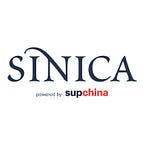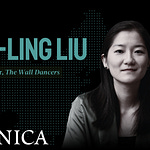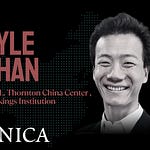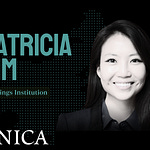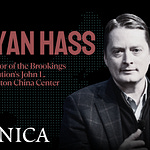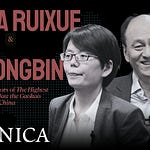Jude Blanchette, the Senior Advisor and China Practice Lead at Crumpton Group’s China Practice, joins Kaiser and Jeremy for a live Sinica Podcast recording at Columbia University. Forty years after the policies of reform and opening up were adopted by the Communist Party of China, the three reflect on just how much the country has changed since 1978, and also restore figures like Zhào Zǐyáng 赵紫阳 and Hú Yàobāng 胡耀邦 to their proper place in the story of reform. Jude also talks about the conservative reaction to reform — the topic of his forthcoming book, Under the Red Flag: The Battle for the Soul of the Communist Party in a Reforming China. What to listen for on this week’s Sinica Podcast: 21:36: Jude discusses the roles of Zhao Ziyang and Hu Yaobang in the context of reform in China: “I don’t know what any of you were doing when you were twelve, but [Hu Yaobang] joined his first revolution when he was twelve and ran away from home and joined the Communist Party when he was fourteen, and was one of the youngest members on the famed Long March.” 23:59: Zhao Ziyang’s central role as a reformer was often viewed as radical by many conservatives within the Party, particularly during his brief tenure as General Secretary after the ousting of Hu Yaobang. In 1987 he pushed for separation of the Party and the government (党政分开 dǎngzhèng fēnkāi), which was ultimately unsuccessful. “The Party is the owner of the restaurant, it can decide what’s on the menu, but the government is the chef in the back kitchen. It’s the one that is going to be actually making the dishes, we need to give them that latitude and leeway to do that.” 31:52: As China transitioned away from a reserved foreign policy of ‘hide and bide’ (韬光养晦 tāoguāng yǎnghuì) in the 1990s to more assertive approach of fènfā yǒuwéi (奋发有为). Jude elaborates on the transformation: “There’s also just the natural transition of a developing country to one becoming increasingly strong and articulating its own goals which diverge from that of the United States or other client states… we’re seeing now the full force of it coming out under Xi Jinping today. But I think the casting off of hide and bide, even as a cynical strategy we can see in retrospect was a catastrophic mistake by Xi Jinping.” 1:02:31: In the past few years, Deng Xiaoping has been written out of the history of Reform and Opening. Jude speculates on why: “As long as Deng Xiaoping and his legacy is around, that’s a cudgel that opponents can pick up… the more you allow the speeches of Hu Yaobang and Zhao Ziyang and Deng Xiaoping… speeches from Zhao Ziyang on political reform, speeches from Deng Xiaoping on separating the Party and the government. Basically, just Deng Xiaoping on [not having] a cult of leadership and how disastrous that is. Those are political weapons, so, clear them all away, get rid of them, burn the books.” Recommendations: Jude: Free Solo, a documentary of the climber Alex Honnold and his no-ropes climb up the 3,000-foot rock face of El Capitan. Kaiser: These Truths: A History of the United States by Jill Lepore, a historiographical account of the American experiment beginning in 1492. Jeremy: One Long Night: A Global History of Concentration Camps by Andrea Pitzer. ---- From now until January 14, get a year of SupChina Access at 25% off for just $66!
This podcast was edited and produced by Kaiser Kuo and Jason MacRonald.
See Privacy Policy at https://art19.com/privacy and California Privacy Notice at https://art19.com/privacy#do-not-sell-my-info.


